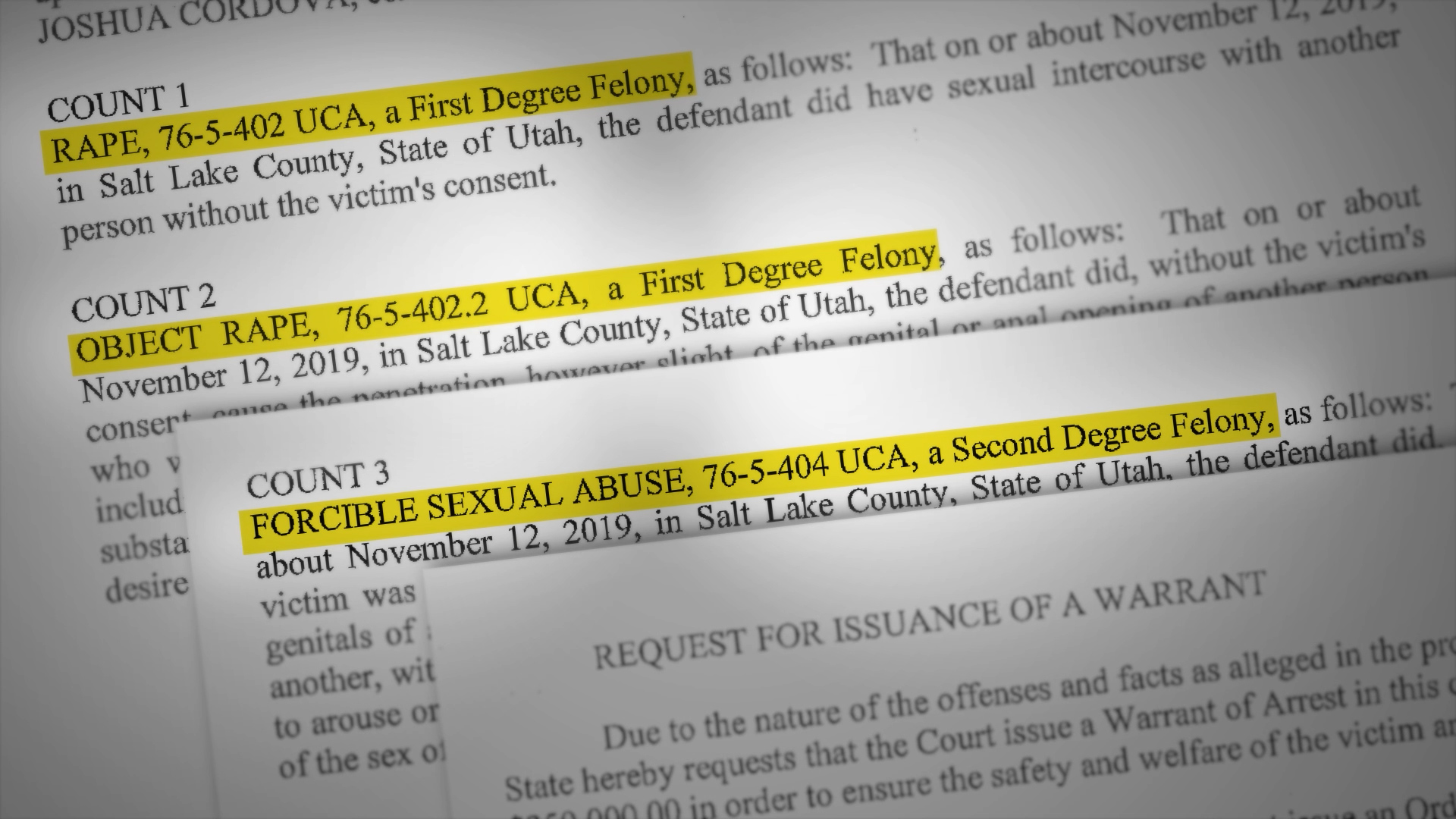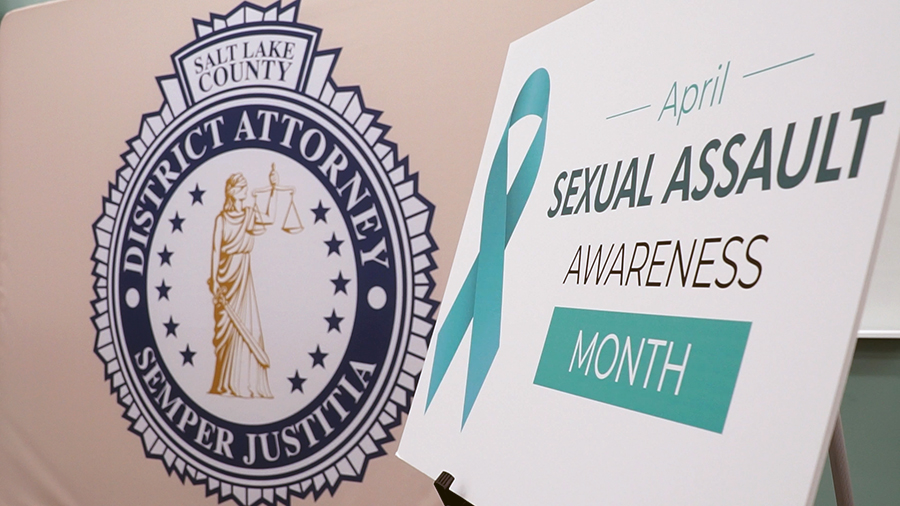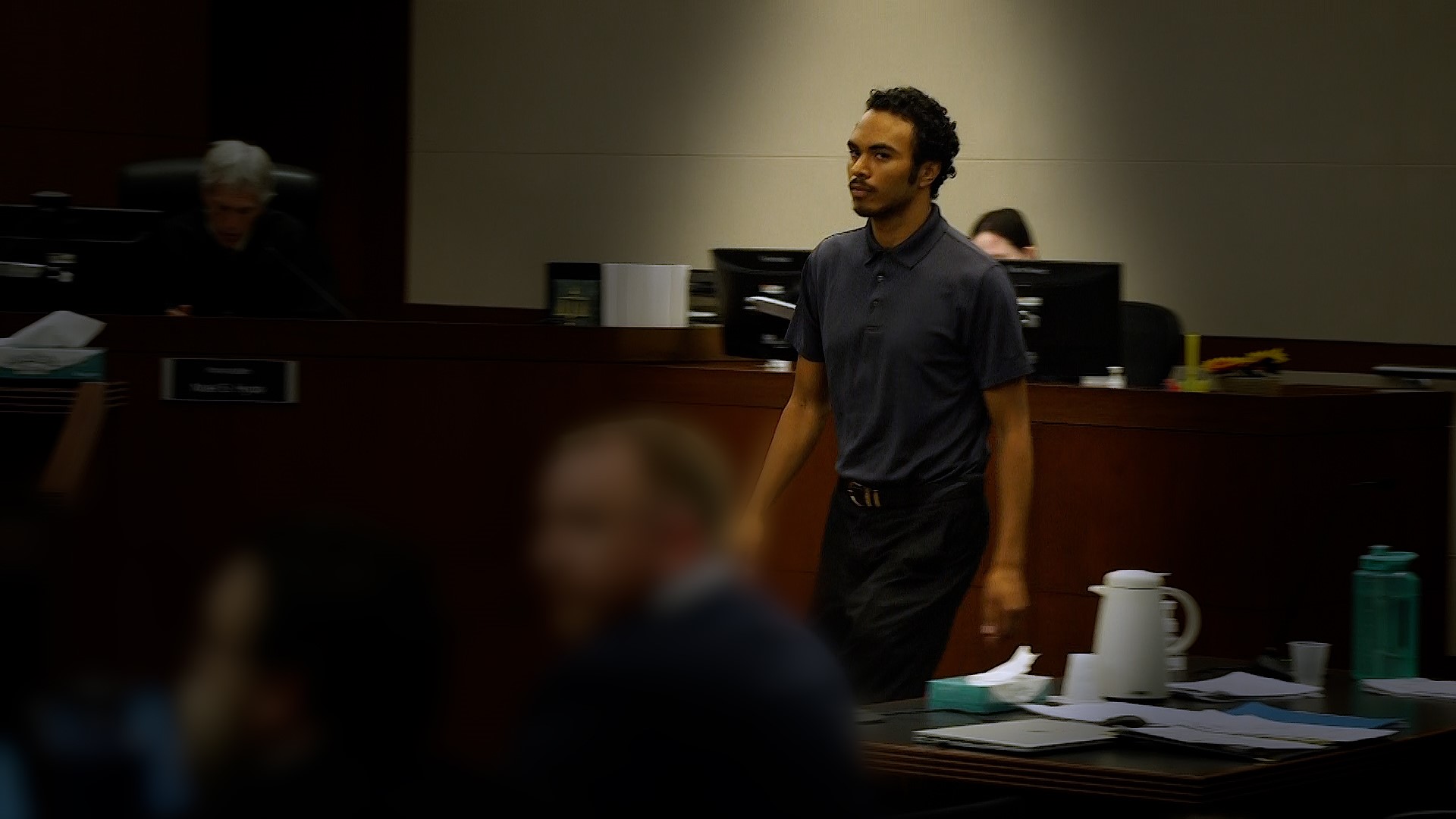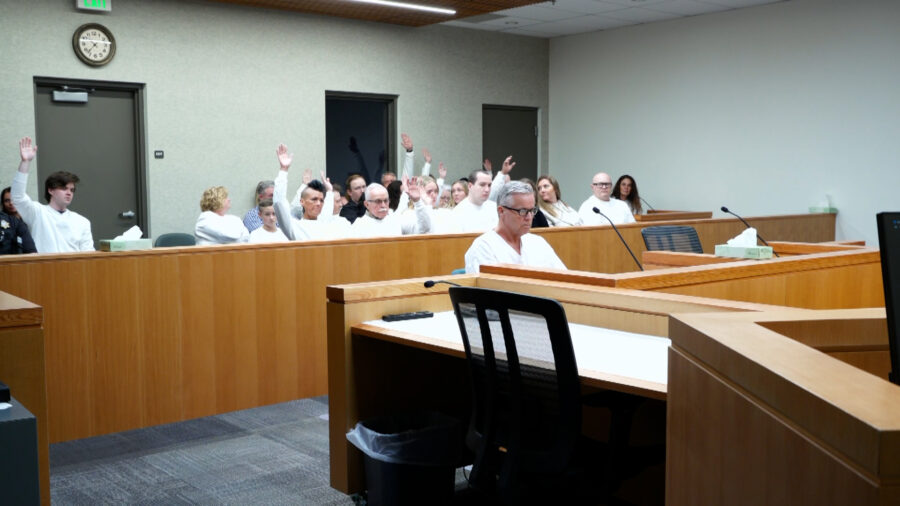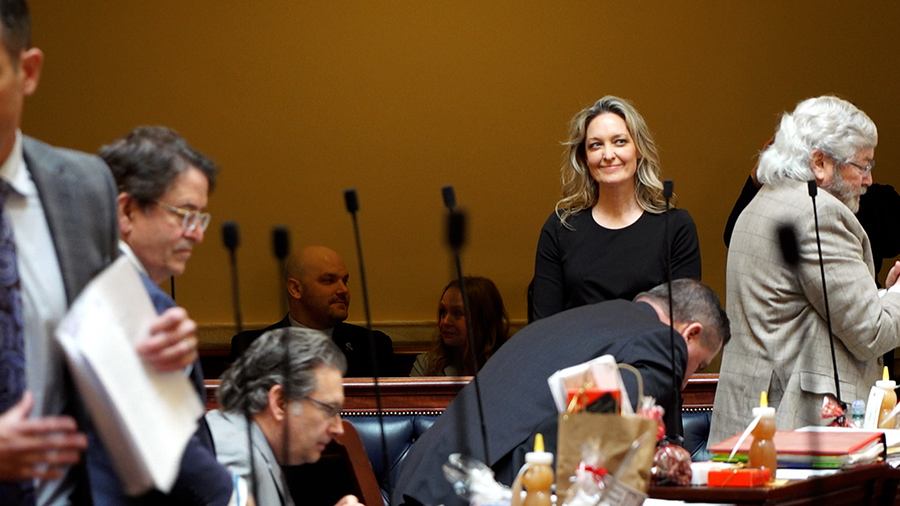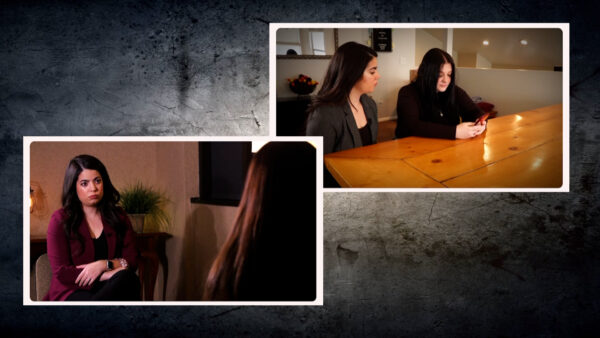‘This process is not working’: Utahns frustrated with state review of crime victim complaints
Sep 12, 2023, 10:14 PM | Updated: Jan 27, 2024, 4:01 pm
Editor’s note: This story is the second of two parts examining the impact of a unique law in Utah allowing fresh reviews of uncharged first-degree felony cases. See the first report here.
SALT LAKE CITY – Tabitha Bell was 17 when she reported to Sandy police in 2017 that she was raped by a classmate, leading to multiple investigations but no criminal charges.
She took her case to the office of the state’s top prosecutor in 2019 for a fresh look under a new Utah law designed to better serve victims of sexual assault.
Now Bell is one of two women who have filed formal complaints against the Utah Attorney General’s Office with the state’s Council on Victims of Crime over a process they say didn’t follow best practices.
“I feel betrayed by my state,” Bell said. “If my perpetrator has hurt another person, it’s really off of my hands.”
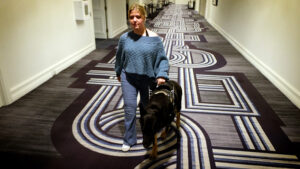
Tabitha Bell filed a formal complaint against the Utah Attorney General’s Office with Utah’s Council on Victims of Crime, after submitting her rape case for review under HB 281. (Jack Grimm/KSL TV)
Her complaint to the victim’s council says she suffered “severe emotional distress” after she was read a “lengthy, explicit” statement containing the suspect’s version of events, without her victim advocate present. Bell told KSL that Craig Barlow, justice division director in the Attorney General’s Office, directed her victim advocate to leave the room before reading the statement.
Barlow didn’t respond to requests for comment. And the Attorney General’s Office wouldn’t discuss Bell’s case, except to say it wanted the best for her.
“When we cannot move forward with a criminal filing, we understand that it is extremely distressing to the victim and their family,” the office said in an emailed statement. “In Ms. Bell’s case, everyone who worked on that case wanted nothing less than the very best for her.”
While Bell said she felt the investigation was mishandled, the process troubled her more than the office’s decision not to file charges against the suspect.
The office didn’t record her interview when she met with employees to go over details of the case, Bell said. But employees who were in the room created written statements about what happened, with most dated four to six months later, according to case records obtained by the KSL Investigators.
Bell said those written records mixed together her account of what happened with the suspect’s and make it look like she changed her story from earlier statements she’d given to police.
A screening presentation for Bell’s case created by the Attorney General’s Office noted that Barlow’s interview with Bell “differed in significant ways from three prior interviews.”
Attorney Greg Ferbrache was representing Bell and was present for her interview with representatives from the Attorney General’s Office.
“I disagree with the statements, wherein they indicate that Tabitha was inconsistent,” Ferbrache said. “It was not handled in accordance with best practices.”
He also noted the employees’ statements conflict, at times, with each other.

Attorney Greg Ferbrache represented Bell and was present during her meeting with Utah’s Attorney General’s Office. (Ken Fall/KSL TV)
Bell told the KSL Investigators her rare form of muscular dystrophy had a significant impact on what happened to her.
“I physically couldn’t resist my assailant,” she said.
But Bell believes the Attorney General’s Office did not fully consider her medical diagnosis as a factor in the case, noting a memo created by the office stated, “despite her physical disability, Tabitha is an accomplished champion equestrian who competed at a high level and was a potential Olympian.”
Bell is able to ride horses with safety adaptations, including magnets in her boots, and said she was once invited to participate in the 2020 Paralympics.
“They were doing the criminal investigation on me as a survivor instead of my own assailant,” Bell said.
The second complaint against the Attorney General’s Office stems from a conversation that was recorded by attorney Jana Tibbitts.
Tibbitts told KSL her client was fearful of retaliation from the man accused of raping her, so she asked to be notified before investigators got in touch with the suspect. Tibbitts said Barlow dismissed her client’s concerns about her safety, the review process, and potential conflicts of interest.
“If (redacted) doesn’t feel comfortable proceeding, then she could withdraw her 281 request, but she doesn’t dictate how we investigate the criminal case,” Barlow is heard saying in the recording Tibbitts shared with KSL.
Her client’s complaint to the victim rights council describes Barlow during the conversation as “openly hostile.”
“It’s not just the no justice,” Tibbitts said in an interview. “It’s the no protection.”
Both complaints were filed in the summer of 2020. More than three years later, both women say there’s been no resolution.
In response to the complaints, a lawyer in the Attorney General’s Office sent an email to the council in 2022, saying moving forward, they’d include victim advocates in interviews, make recordings of those interviews, and conduct “additional training to ensure a victim-centered approach.”
In reply to that email, council member Reed Richards wrote, “a well thought out response. It should help calm down the complainants.”
Tibbitts says those practices should have been in place from the start. But the KSL Investigators learned they still may not be happening.
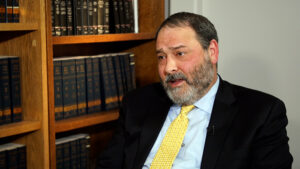
Che Arguello was hired by the Utah Attorney General’s Office in September 2020 to serve as the HB 281 prosecutor. (Josh Szymanik/KSL TV)
Second-look prosecutor Che Arguello told us generally, the office records interviews, but it doesn’t do so for every interview.
“There’s no hard and fast rule, at all,” Arguello said.
And the office wouldn’t confirm to KSL whether the extra training has taken place. When we filed a public records request seeking documentation of that training, the office said it couldn’t find any records.
The Utah Attorney General’s Office wouldn’t answer questions about the cases that led to the two complaints, but in an emailed statement wrote that they handled the cases professionally and appropriately.
“We stand by the professionalism and compassion of our teams, especially those who work constantly to provide justice to victims of violent crimes,” the statement reads.
The office believes the “vast majority of these victims and survivors have had a positive experience with our teams and many have expressed appreciation for our care and advocacy on their behalf,” the statement continues. “The grim reality is that sexual assault cases are devastating to victims even when they are handled professionally and appropriately, like the cases you have referenced.”
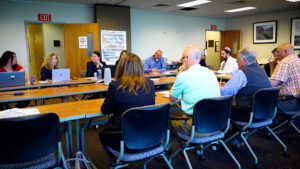
Utah’s Council on Victims of Crime spent hours drafting a revised process for victims rights complaints in June. (Josh Szymanik/KSL TV)
Utah’s Council on Victims of Crime hasn’t released any findings about whether the women’s rights were violated.
Avremi Zippel, chairperson of the council, said Bell’s experience has brought to light the council’s own problems adjudicating complaints.
“This process is not working,” Zippel said.
In a December 2022 email, Zippel told Bell’s family that the council would present a letter with its findings in March 2023. But they didn’t end up issuing a letter.
Zippel said they couldn’t do so, because the council determined the investigation didn’t follow the process outlined in Utah law. He said he learned the complaints should have been handled by yet another committee, but they weren’t. So, to get a decision, Bell would have to start the complaint process over again.
The council spent hours drafting a revised process at its regular meeting in June.
Zippel said they’re pushing for clarity, but they also want more power to act when victim’s rights are violated, and to get that, he says they need the Legislature to intervene.
“If people are getting run around, we’re doing something wrong,” Zippel said.
Rep. Tyler Clancy, R-Provo, told the KSL Investigators he’s working with the council to draft legislation with the goal of strengthening and clarifying Utah law for victims of crime.
As a potential legislative solution is in the works, the women behind those complaints say they want to see the system improve for others.
“I have done my part. I’ve done all of it,” Bell told KSL.
“It’s upsetting,” Tibbitts said, “because it’s fixable.”
This report is part of a series examining how apparent gaps at every level of Utah’s criminal justice system fail to protect Utahns.
If you have experienced sexual violence, you can access help and resources by calling Utah’s 24-hour Sexual Violence Helpline at 1-888-421-1100. You can also call the National Sexual Assault Hotline at 1-800-656-4673 for free, confidential counseling.
Have you experienced something you think just isn’t right? The KSL Investigators want to help. Submit your tip at investigates@ksl.com or 385-707-6153 so we can get working for you.


